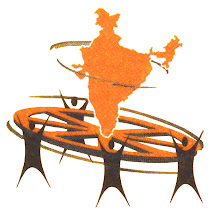(Ref: savarkar.org)
Questions and Answers (Regarding Savarkar’s Thinks)
This section deals with various aspects of Savarkar’s life, thought, actions and relevance in a question and answer format. Questions are raised regarding Savarkar and his place in Indian history. Some of these questions stem from genuine curiosity and willingness to understand. Some questions take the form of accusations born out of outright ignorance or sheer malice. This section aims to address some of these questions.
Humanism, rationalism, utility and pragmatism were the guiding principles of Savarkar. According to him, the ultimate aim of all politics was formation of a world state. Nationalism, according to him should be consistent with humanism. “The Hindus will become free and will liberate the world for the protection of equality, kindness and the righteous people’’ wrote Savarkar, in “aika bhavishyala”, his last poem. For Savarkar, humanity included Hindus too. He used to flay the Congress leaders who shed tears for Abyssinia but did not have even a word for the Hindus suffering Muslim atrocities. To him, service of man was service of God.
Savarkar held that all scriptures are man made and not God sent and one should look at them not in a literal but historical sense. All were made in a particular stage to promote human welfare. We should look not only at them but even at notions of very primitive tribes like the Andamanese with a similar view.
Savarkar has listed his thoughts on Manusmriti during 1933 to 1935 and then again in 1956.
In 1933, during the festivities of Ganeshotsav and Navratri, he delivered lectures on the Manusmriti for nine days. "Women in Manusmriti" was the title of four articles that Savarkar wrote in 1933. These were published in the progressive Marathi monthly "Kirloskar". Savarkar's article titled, "Excess of religious simple-mindedness" was published in February 1937 issue of 'Kirloskar'. There is also an article by Savarkar entitled "Which is the true Sanatana Dharma?" In short, Savarkar says, "It is impossible to live acording to Manusmriti today because times have changed and the rules in the book are not applicable for all times...Manusmriti, just like any other religious text, contains many contradictions. If we regard Manusmriti as divine, we cannot explain the contradictions. However, if we regard it as a historical document, we can easily explain the contradictions. Savarkar openly differs with several things recommended in the Manusmriti. For example, Manu says that one should not marry girls who are named after constellations, trees, rivers, mountains, serpents, servants or monsters. Savarkar comments that "our conservative friends would now realize how impossible it is to abide by the rules of Manu and regard his commands as valid for all times. He further says that it is absurd to impose greatness on such texts. That attempt is laughable and prohibits progress.
In his article, "Women in Manusmriti", Savarkar says, "We may find many passages in Manusmriti which can provide valuable guidance to today's problems. but we should accept them because they are beneficial today, not because they were found in an ancient text and certainly not because manu's orders are not to be transgressed. Whatever we find in Manusmriti to be harmful or ridiculous today should not be followed, but that does not make Manusmriti harmful or ridiculous. On the contrary, when compares Manusmriti with codes of other societies such as Babylon, Egypt, Hebrews, Greece and Roman, Manusmriti stands high above the rest. It deserves our respect for that"
(feed back on btjoshi87@gmail.com)





No comments:
Post a Comment